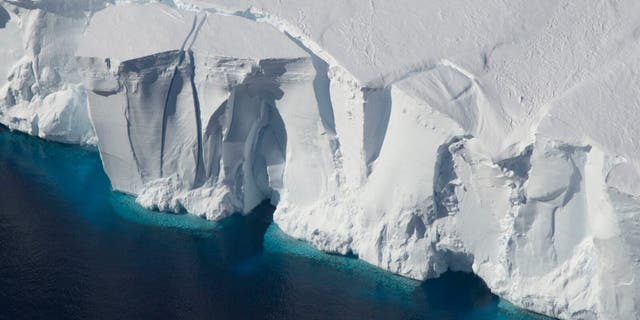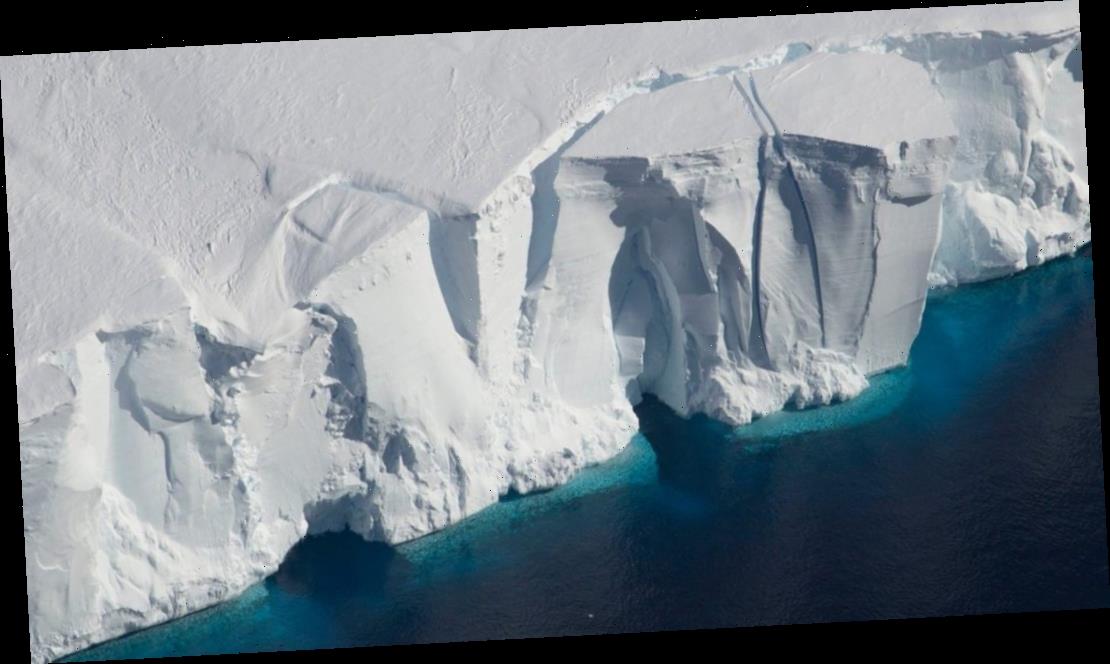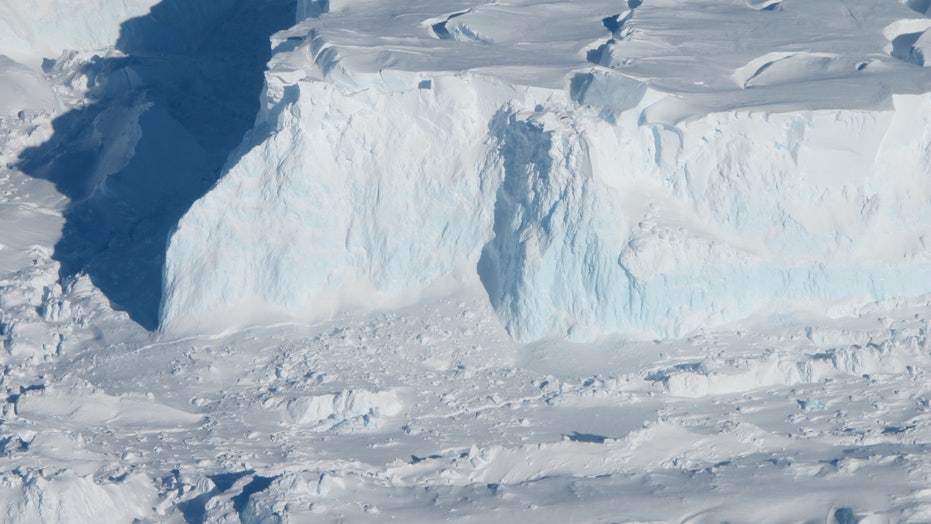Fox News Flash top headlines for September 23
Fox News Flash top headlines are here. Check out what’s clicking on Foxnews.com.
If the goals of the 2015 Paris Climate Agreement are not met, the Antarctic ice sheet will melt, resulting in global sea levels rising to the point where humanity will have to "give up … New York," according to a new study.
The research, published in Nature, notes that if temperatures rise 2 degrees Celsius, ocean levels will rise 2.5 meters (8 feet), the temperature limit set by the Paris agreement. Should temperatures rise 4 or 6 degrees Celsius, sea levels would eventually rise 6.5 meters (21 feet) and nearly 12 meters (39 feet), respectively.
"Antarctica holds more than half of Earth's fresh water, frozen in a vast ice-sheet which is nearly 5 kilometers thick," study co-author Ricarda Winkelmann said in a statement. "As the surrounding ocean water and atmosphere warm due to human greenhouse-gas emissions, the white cap on the South Pole loses mass and eventually becomes unstable."

Ice shelves in Antarctica, such as the Getz Ice Shelf seen here, are sensitive to warming ocean temperatures. Ocean and atmospheric conditions are some of the drivers of ice sheet loss that scientists considered in a new study estimating additional global sea level rise by 2100. Credits: Jeremy Harbeck/NASA
Winkelmann continued: "Because of its sheer magnitude, Antarctica's potential for sea-level contribution is enormous: We find that already at 2 degrees of warming, melting and the accelerated ice flow into the ocean will, eventually, entail 2.5 meters of global sea level rise just from Antarctica alone. At 4 degrees, it will be 6.5 meters and at 6 degrees almost 12 meters if these temperature levels would be sustained long enough."
The landmark Paris Climate Agreement, which was agreed to in 2015 under the Obama administration, has as its long-term goal limiting the increase to 1.5 degrees Celsius. Nearly 200 nations signed the landmark agreement, including China.
In early November 2019, the Trump administration began its formal withdrawal from the agreement.
The period of melting is likely to last for many years, but it's likely the changes will be permanent, the researchers added.
"Antarctica is basically our ultimate heritage from an earlier time in Earth's history," study co-author Anders Levermann added. "It's been around for roughly 34 million years. Now our simulations show that once it's melted, it does not regrow to its initial state even if temperatures eventually sank again. Indeed, temperatures would have to go back to pre-industrial levels to allow its full recovery – a highly unlikely scenario. In other words: What we lose of Antarctica now, is lost forever."
In an interview with the Guardian, Levermann was even direr, noting 'we will be renowned in future as the people who flooded New York City.”
Earlier this week, a separate study said sea levels could rise 15 inches by 2100 because of melting from the Antarctic and Greenland ice sheets if greenhouse gas emissions continue at their current pace.
The research shows the stark impact humanity is having on the planet, even if the most extreme impacts will not be seen for years to come, Winkelmann continued.
"In the end, it is our burning of coal and oil that determines ongoing and future greenhouse-gas emissions and therefore, if and when critical temperature thresholds in Antarctica are crossed. And even if the ice loss happens on long time scales, the respective carbon dioxide levels can already be reached in the near future. We decide now whether we manage to halt the warming. If we give up the Paris Agreement, we give up Hamburg, Tokyo and New York."
A separate study published in February suggested that if global temperatures were to rise 0.5 degrees Celsius over the next 50 years, approximately half of the world's species would become locally extinct. If temperatures were to rise 2.9 degrees Celsius, 95 percent of the species would become locally extinct.
In March, another study suggested that almost half of the world's sandy beaches could be gone by 2100 if climate change continues.
In August, researchers found that 28 trillion tons of ice, primarily from the Arctic sea, Antarctic ice shelves and mountain glaciers, had been lost over the past 23 years, "a direct consequence of climate warming."
CLIMATE CHANGE WILL SHRINK 'VIRTUALLY ALL' ECONOMIES AROUND THE GLOBE BY 2100, STUDY WARNS
In May 2019, a separate study suggested climate change could raise sea levels by as much as 7 feet by 2100.
Skeptics have largely dismissed fears over man’s impact on global warming, saying climate change has been going on since the beginning of time. They also claim the dangers of a warming planet are being wildly exaggerated and question the impact that fossil fuels have had on climate change.
CLICK HERE TO GET THE FOX NEWS APP
Source: Read Full Article

